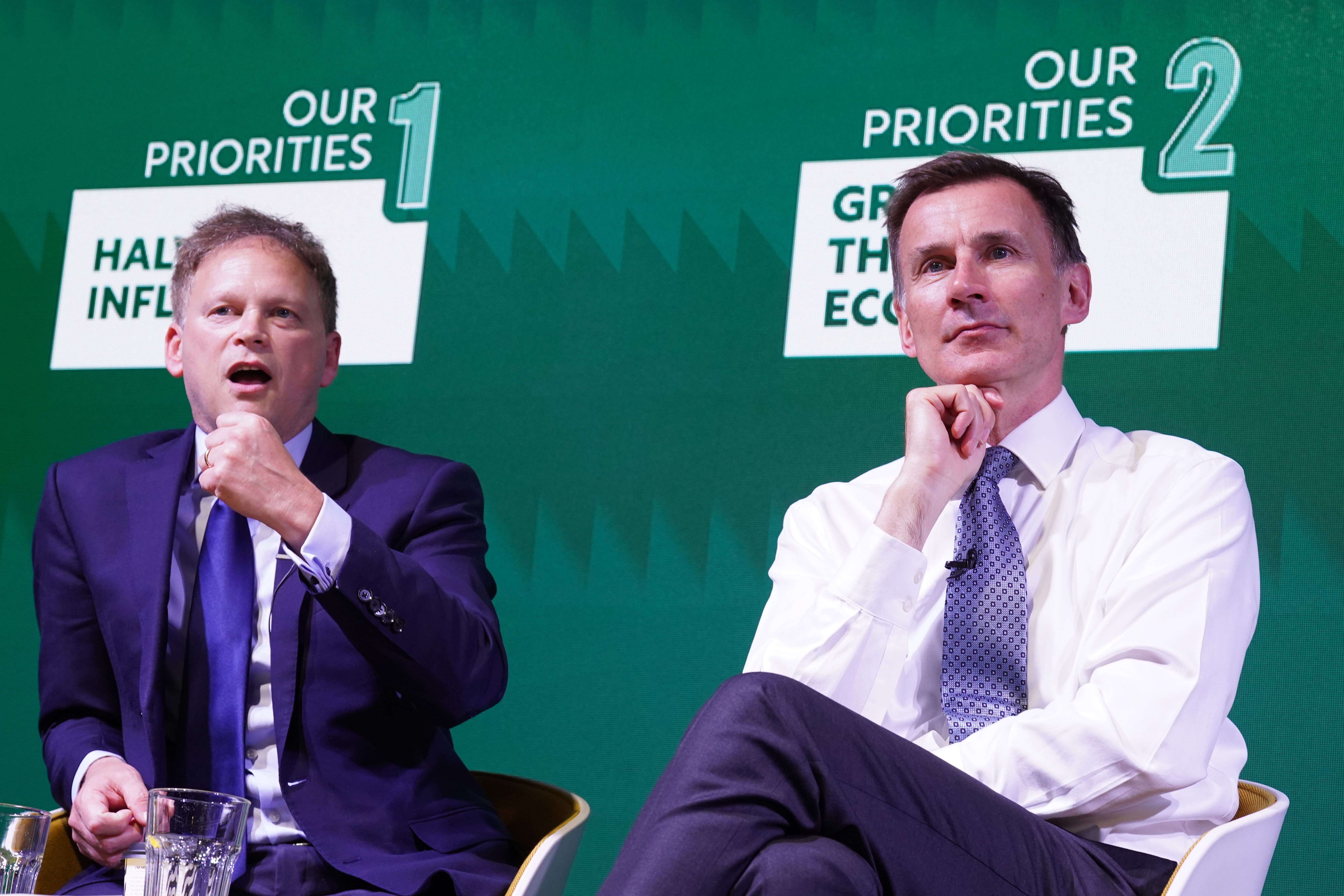
Plans by Rishi Sunak’s government to boost carbon capture technology and offshore wind have been dismissed “half-baked” and “dangerous lacklustre” by climate campaigners.
Chancellor Jeremy Hunt unveiled the scheme – billed as the first step in a response to the US’ multibillion-dollar investment in green technology – with a swipe at Joe Biden.
The US president’s huge £348bn package of tax credits and other subsidies for green technology is an attempt to get the American economy ready to tackle climate change.
But writing in The Times, Mr Hunt accused Mr Biden of leading a “distortive” global subsidy race, arguing that the long-term solution to the threat of protectionism was “not subsidy but security”.
“Yes, we will continue to back industries of the future, however, we will target public funding in a strategic way in the areas where the UK has a clear competitive advantage,” Mr Hunt said. “We are not going toe-to-toe with our friends and allies in some distortive global subsidy race.”
The UK energy secretary plan sees the government push its existing £20bn investment in carbon capture technology, as well as £160m for port infrastructure to help expand offshore wind.
But the plans quickly drew criticism from Labour – who claimed it amounted to “reheated policy and no new investment”, accusing the chancellor of “waving the white flag in the global race for green jobs”.
Labour’s climate secretary Ed Miliband said: “Other countries are matching the ambition of the US, UK business says we must, but Tory dogma says No,” the MP said. “Britain can’t afford a government that will make us losers in this race.”
Tory climate adviser Chris Skidmore, former energy minister, said Mr Hunt’s comments about the Biden administration were “regrettable”. He told Times Radio: “What we should be doing is looking at what’s happening in the US as an opportunity for ourselves.”
Energy secretary Grant Shapps said the energy security plan, due to be published on Thursday aloing with the chancellor’s update to the green finance strategy, would set out how the government plans to “fix” the problem of reliable energy.
New green hydrogen production projects also feature alongside plans to establish of Great British Nuclear, with the government also pointing to £5,000 grants towards heat pump insulation, which will be extended to 2028.
More than £380m will go towards improving the number of electric vehicle charge points. And the Great British Insulation Scheme, a rebrand of ECO+, will aim to upgrade 300,000 homes with grants.

But campaigners and critics suggested that ministers had missed the chance to pursue a more radical green industrial strategy – with Friends of the Earth (FoE) labelling some of the announcements “half-baked and half-hearted”.
Dr Paul Balcombe, senior lecturer in renewable energy at Queen Mary University of London, said “the stated intention of insulating 300,000 out of [more than] 20 million homes is clearly insufficient when we have such a poorly insulated housing stock”.
Mike Childs, head of policy at FoE, warned: “With these policies looking dangerously lacklustre and lacking on climate action, we will be combing through the detail of the amended strategy and are poised to act if ministers have fallen short once again.”
Climate scientists have warned that carbon capture and storage (CCS) technology is “yet to be proved at scale” and encourages continued fossil fuel exploitation – urging the Sunak government to stop licensing new oil and gas developments.

Mr Shapps admitted that “we’re not there yet” on carbon capture technology, but said: “We probably have the ability to store billions if not trillions of pounds worth of other people’s carbon in those locations.”
When challenged over his use of the word “probably”, the cabinet minister told GB News: “We know that you can actually do this. It’s technically possible to do. Yes, there are lots of practical implications of doing it.”
The US Inflation Reduction Act (IRA) set out £300bn in green subsidies through grants, loans and tax credits. And the EU Green Industrial Plan offers £200bn in loans to businesses to invest in green technology.
Business leaders had been expecting policies on Thursday that would spur Britain’s investment in green technology. But Mr Hunt said the government would not offer a “full national response” to rival US and EU strategies until the autumn.
Jess Ralston, head of energy at the Energy and Climate Intelligence Unit said to took six months for the EU to respond to the US Inflation Reduction Act – questioning why it would take more than a year for the UK to do so.
“This delay could be the final nail in the coffin for some investors looking for long-term policy and regulatory certainty,” she said. “Where’s the plan on gigafactories and green steel where we lag behind Europe?”
The government will also publish its response to Tory MP Chris Skidmore’s review into how the UK can reach net zero by 2050. It said it is acting partly or fully upon 23 of the 25 recommendations made by Mr Skidmore in his January report.







